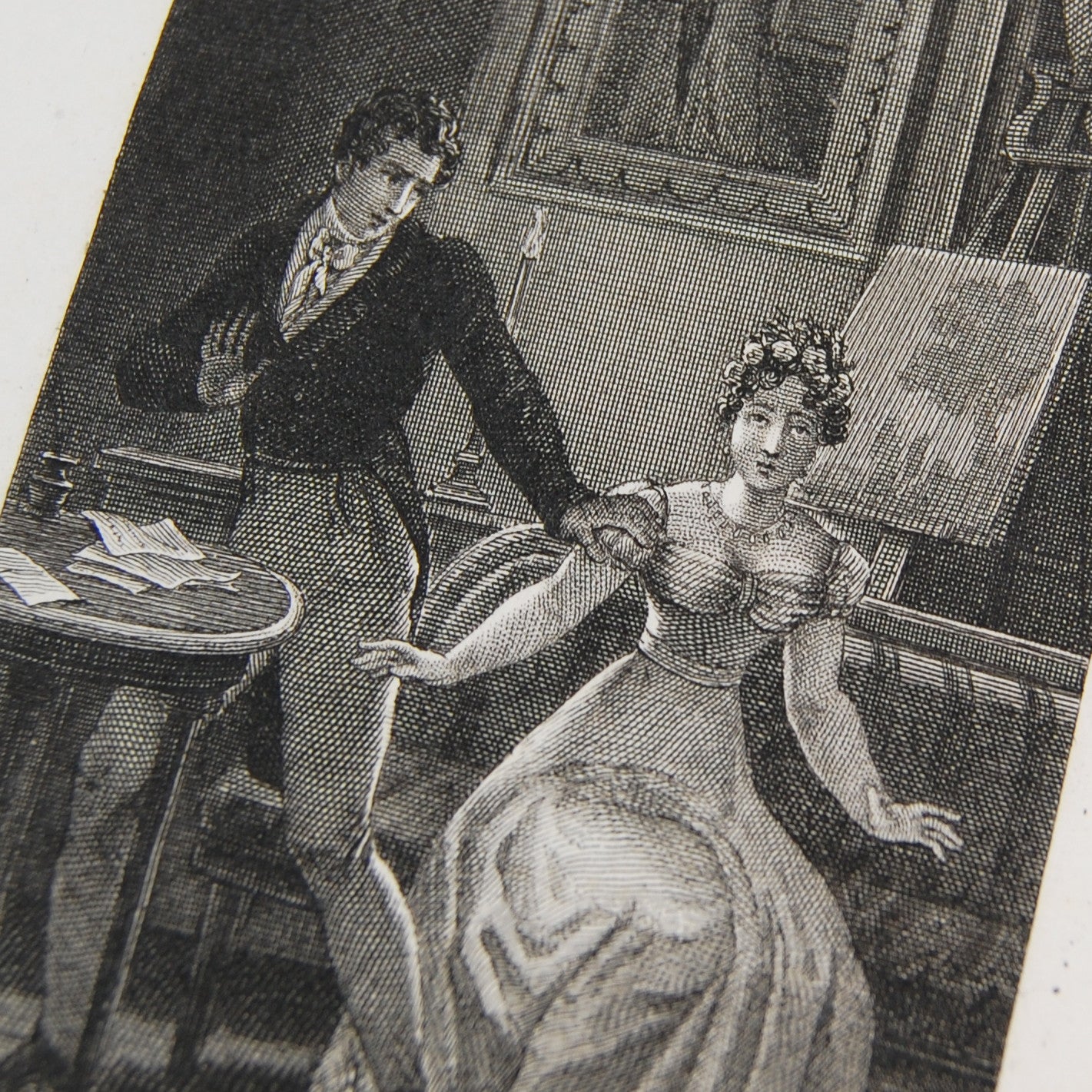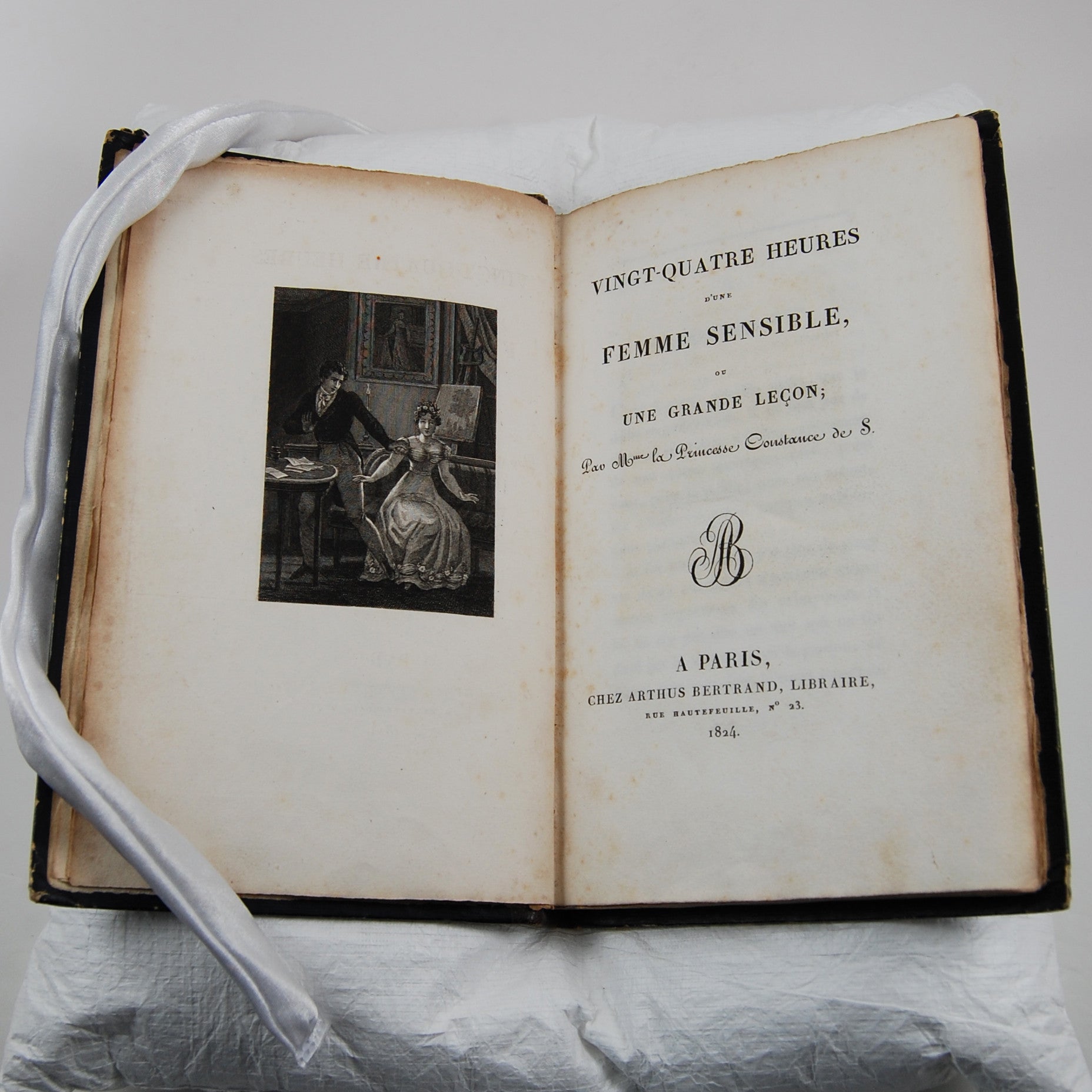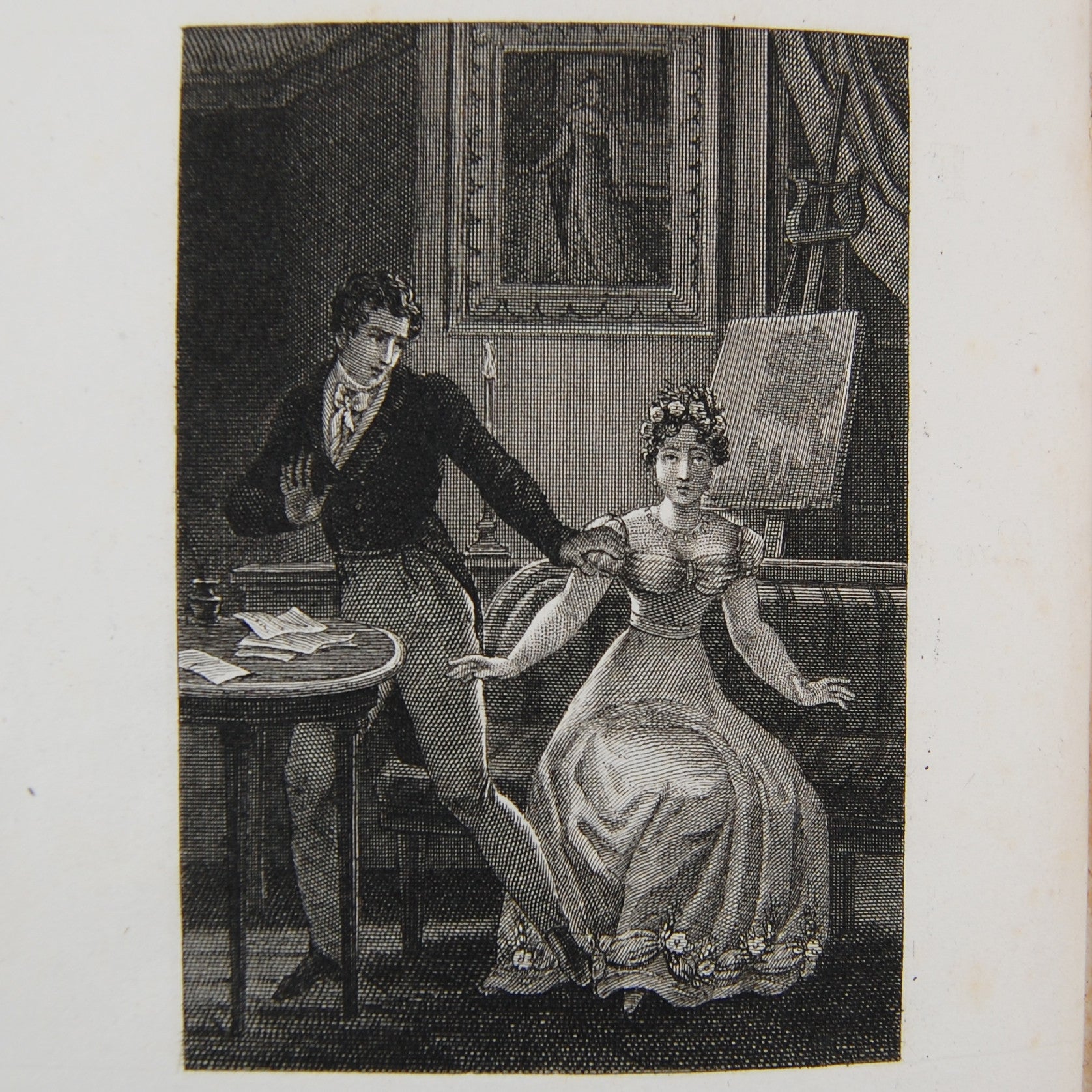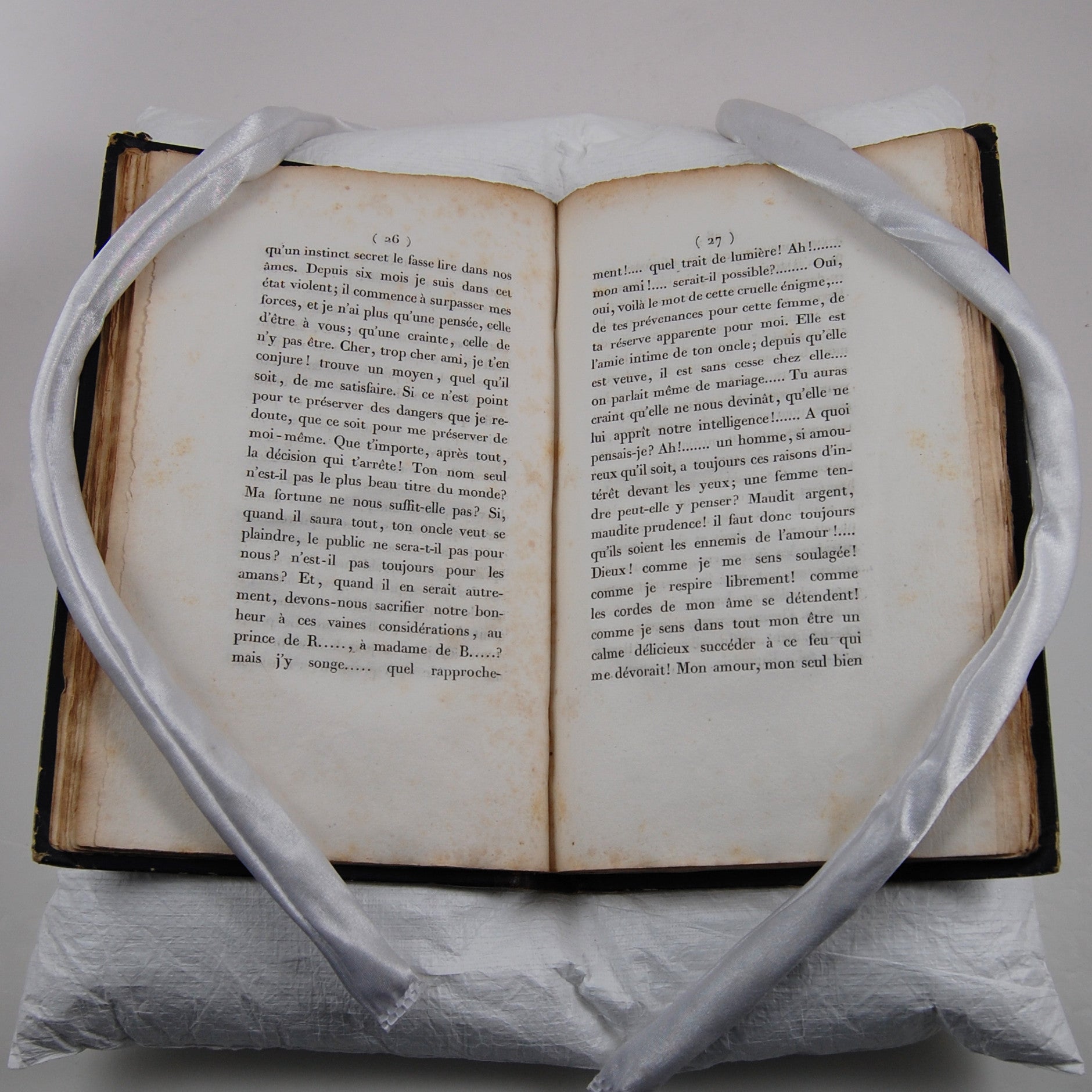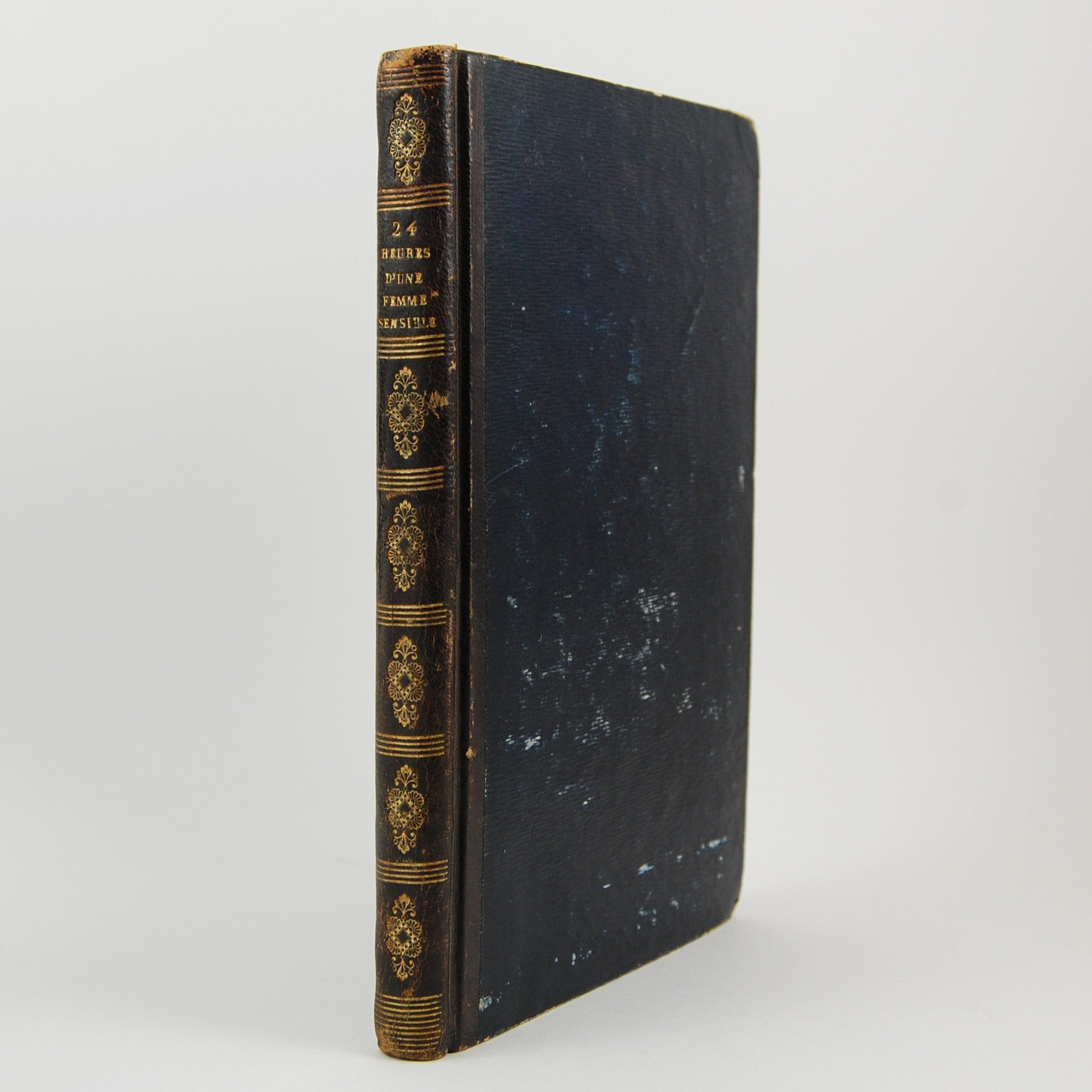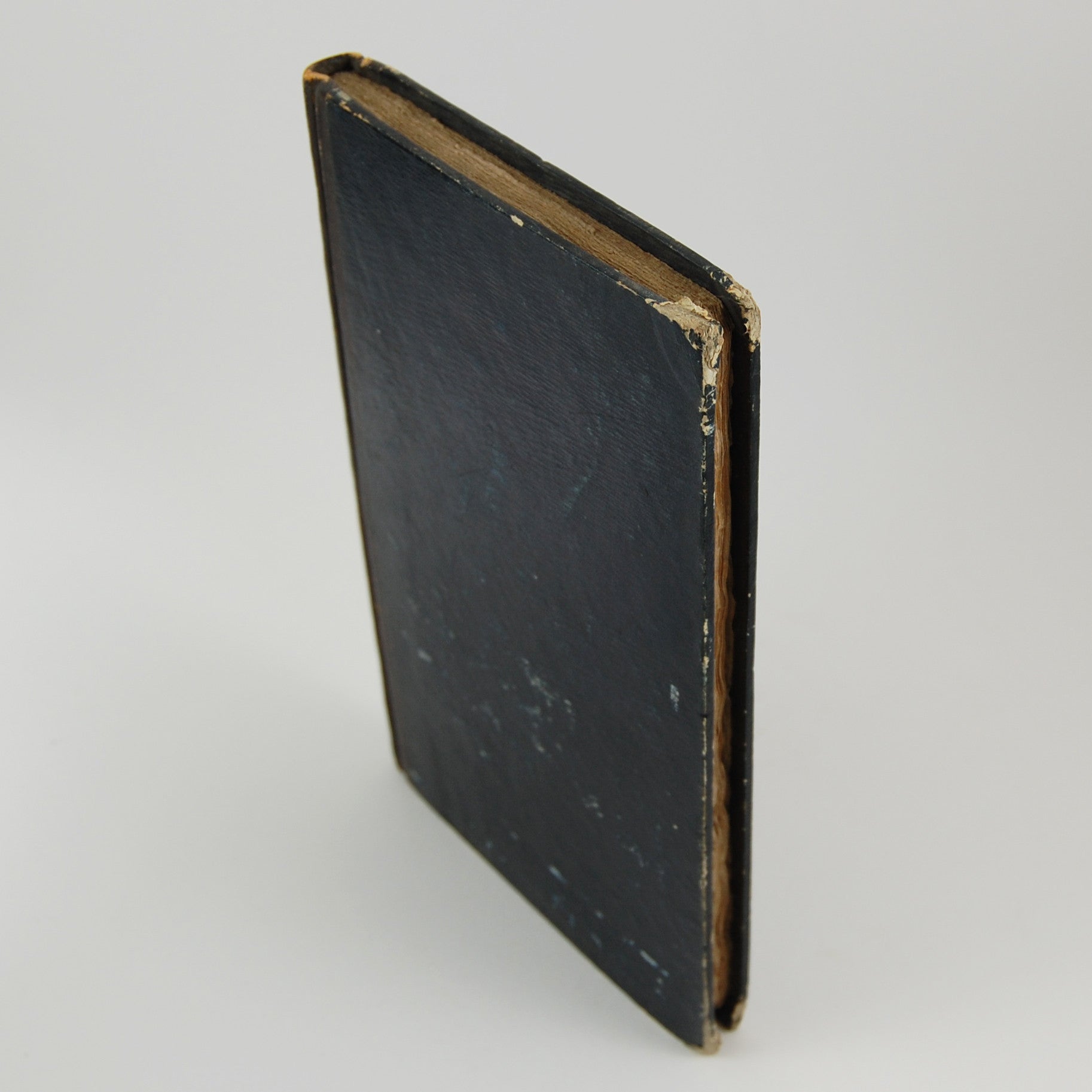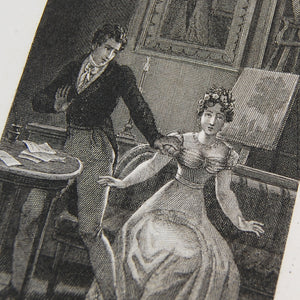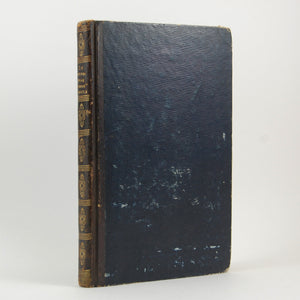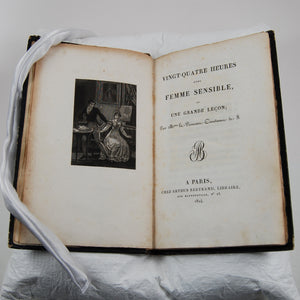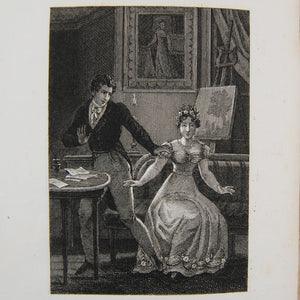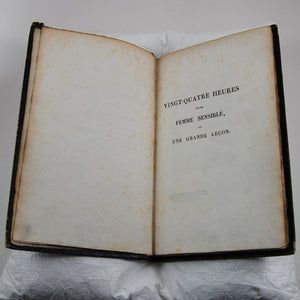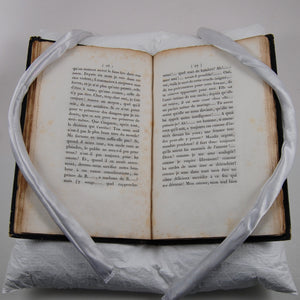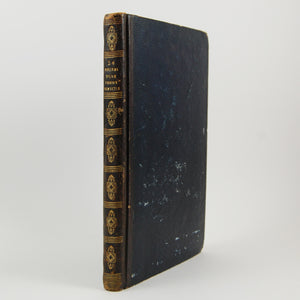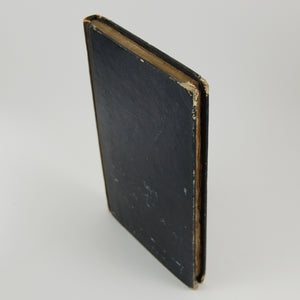de Salm, Constance | Vingt-Quatre Heures d'une Femme Sensible
£500.00
-
First edition. Author Constance de Salm (1767-1845) was a highly regarded French writer and moral philosopher, and an important member of a circle of leading intellectuals and scientists. Though forgotten for much of the 19th and 20th centuries, she is now the subject of renewed historical interest, providing a window onto the lives and intellectual networks of women in Revolutionary and Napoleonic France.
De Salm spent most of her life promoting the equality of women, and her most important work, the poem Épître aux femmes (1797), was a direct attack on the language and social structures that uphold patriarchy, as well as an exhortation to women to liberate themselves. During her career “she used a variety of genres to address issues of importance to women, such as equal access to educational opportunities and to family courts, recognition of intellectual achievement, the infantilization of women and the denigration of their abilities, the cost to women’s health of reproduction, and adequately renumerated work for poor, widowed, and single women. In many ways she can be usefully compared to Mary Wollstonecraft…” (Hine, Constance de Salm, Her Influence and Her Circle in the Aftermath of the French Revolution, p. 4).
De Salm’s friendships with scientists were an important part of her intellectual life. She was close to the astronomer Joseph-Jérome Lalande, who left her his unpublished manuscripts and asked her to write his eulogy. “Not only did she know Lalande well enough to have him entrust her with securing his legacy, but she was acquainted with renowned scientists like the natural philosopher Auguste de Candolle, the botany professor at the Jardin du Roi, Antoine de Jussieu, the naturalist Alexander von Humboldt… all of whom were among her circle of friends and frequented her salon… Her involvement can be used to illustrate the shift from earlier philosophical debates among scientists to the increasing interest on the part of women in scientific culture in the latter part of the eighteenth and the early part of the nineteenth centuries ” (Hine pp. 2-3).
The present text, Twenty-Four Hours in the Life of a Sensitive Woman, is an epistolary novel exploring the mindset of a woman whose lover may have abandoned her for another. It was praised by her friend, the author Stendhal and is now rare in the first edition. We can locate only one institutional copy, at the British Library.
- ...ou Une Grande Leçon. Paris: Arthus Bertrand, 1824. Octavo. Contemporary quarter black skiver, blue boards, spine gilt in compartments. Engraved frontispiece. 1 leaf of publisher’s ads at rear. Spine rolled, binding rubbed, spotting and toning of contents, primarily in the margins. A very good copy.

